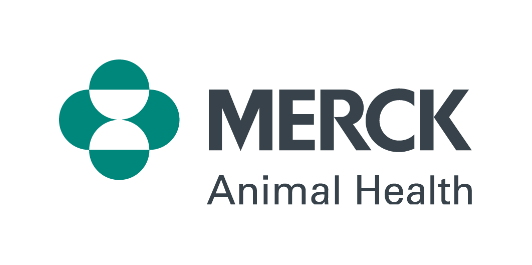Merck Animal Health Launches Campaign to Raise Awareness About Canine Dry Eye Syndrome
Dog Owners Can See First Hand the Effects of Dry Eye on a Dog’s Vision
SUMMIT, NEW JERSEY, September 2, 2014 – Merck Animal Health (known as MSD Animal Health outside the United States and Canada) is launching a new global awareness campaign that is especially designed to give pet owners a realistic sense of their dogs’ experience when they are suffering from Keratoconjunctivitis sicca (KCS), commonly referred to as canine Dry Eye. This awareness campaign will help dog owners identify the signs of canine Dry Eye before it becomes an issue.
Canine Dry Eye affects 1 out of 22 dogs and the early symptoms can be easily missed by pet owners, leading to irreversible damage to a dog’s vision, and eventually resulting in blindness.1 The aim of the campaign is to encourage dog owners to make an appointment with their veterinarian to screen for KCS when their pet is at risk.
Middle aged to older dogs and certain breeds such as Cavalier King Charles Spaniel, West Highland White Terrier, Shih Tzu, Cocker Spaniel, Pekingese, Yorkshire Terrier, Lhasa Apso, Pug and Bulldog are more prone to KCS. Dogs with sore eyes and/or affected by conditions such as diabetes, Cushing’s Disease and hyperthyroidism may also develop canine Dry Eye and should be tested.
Veterinarians can check for KCS by conducting a quick in-office Schirmer tear test (STT). Early detection may just save a dog’s eyesight and provide the pet owner the peace of mind that they are looking out for their dog’s vision.
“Certain breeds and dogs suffering from pre-existing conditions are at higher risk for canine Dry Eye and veterinarians should screen regularly for canine Dry Eye,” said David Hallas, Associate Vice President, Merck Animal Health. “If left untreated, canine Dry Eye can lead to blindness. However, if caught in time, it can be well managed with medication.”
If diagnosed with canine Dry Eye, there are products available to manage the condition. OPTIMMUNE® (cyclosporine) is one such product. OPTIMMUNE is safe and effective, and is the only veterinary-approved product for the management of KCS and its clinical signs.2, 3 It provides fast-acting results and its long-term efficacy helps safely alleviate a very uncomfortable disease.2, 3 OPTIMMUNE is the trusted veterinary product to treat KCS, developed to deliver the same high quality results every application.
For more information, please visit www.dog-dry-eye.com .
About Merck Animal Health
Today’s Merck is a global healthcare leader working to help the world be well. Merck Animal Health, known as MSD Animal Health outside the United States and Canada, is the global animal health business unit of Merck. Through its commitment to the Science of Healthier Animals™, Merck Animal Health offers veterinarians, farmers, pet owners and governments one of the widest range of veterinary pharmaceuticals, vaccines and health management solutions and services. Merck Animal Health is dedicated to preserving and improving the health, well-being and performance of animals. It invests extensively in dynamic and comprehensive R&D resources and a modern, global supply chain. Merck Animal Health is present in more than 50 countries, while its products are available in some 150 markets. For more information, visit www.merck-animal-health.com or connect with us on Twitter at @MerckAH.
Merck Forward-Looking Statement
This news release includes “forward-looking statements” within the meaning of the safe harbor provisions of the United States Private Securities Litigation Reform Act of 1995. These statements are based upon the current beliefs and expectations of Merck’s management and are subject to significant risks and uncertainties. If underlying assumptions prove inaccurate or risks or uncertainties materialize, actual results may differ materially from those set forth in the forward-looking statements.
Risks and uncertainties include but are not limited to, general industry conditions and competition; general economic factors, including interest rate and currency exchange rate fluctuations; the impact of pharmaceutical industry regulation and health care legislation in the United States and internationally; global trends toward health care cost containment; technological advances, new products and patents attained by competitors; challenges inherent in new product development, including obtaining regulatory approval; Merck’s ability to accurately predict future market conditions; manufacturing difficulties or delays; financial instability of international economies and sovereign risk; dependence on the effectiveness of Merck patents and other protections for innovative products; and the exposure to litigation, including patent litigation, and/or regulatory actions.Merck undertakes no obligation to publicly update any forward-looking statement, whether as a result of new information, future events or otherwise. Additional factors that could cause results to differ materially from those described in the forward-looking statements can be found in Merck’s 2013 Annual Report on Form 10-K and the company’s other filings with the Securities and Exchange Commission (SEC) available at the SEC’s Internet site (www.sec.gov).
1 Pierce VE, Harmer, EJ, Williams DL. Proceedings of the 49th BSAVA Annual Congress, Birmingham, UK, 20-23 April 2006. P. 561.
2 Acta Veterinaria (Beograd), Vol 63, No. 5-6, 677-685, 2013.
3 Morgan RV, Abrams KL. Topical administration of cyclosporine for treatment of keratoconjunctivitis sicca in dogs. Jour. Amer. Vet. Med. Assoc. 1991; 199:1043-1046.
